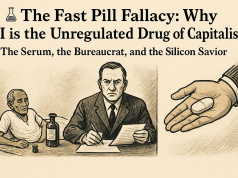In the heart of a city that never sleeps, there lies a stark reality that is often overlooked—the widening chasm of economic inequality. New York, a beacon of opportunity, is also a mirror reflecting the disparities that beset our modern metropolis. As businesses strive for prosperity, there exists a moral imperative to address this pressing issue. Through Corporate Social Responsibility (CSR), businesses have a unique opportunity to lead a transformative charge towards more equitable horizons.
Why is this mission critical? The answer lies not just in altruism, but in the very fabric of our society. A community thrives when its members, irrespective of economic standing, can access opportunities for growth and fulfillment. Conversely, an environment that fosters inequality can erode the communal bonds and stifle the diverse potential of its inhabitants.
So, how can New York-based businesses leverage their CSR strategies to craft a more balanced economic landscape? A multifaceted approach is necessary—one that encompasses fair compensation, education, and community engagement.
First and foremost, the implementation of a living wage is fundamental. A living wage goes beyond the minimum; it provides employees with the means to lead a decent life. Adopting this practice not only bolsters the quality of life for workers, but it also enhances productivity and loyalty within a company. Case in point is the story of a local grocery chain that revised its wage structure. The ripple effect was extraordinary—reduced turnover, elevated consumer satisfaction, and a tangible boost to the local economy.
Secondly, investing in educational programs can be a game-changer. By offering scholarships, internships, and continued learning opportunities, companies can empower individuals to climb the economic ladder. For instance, a New York tech firm initiated a coding boot camp for underprivileged youth, setting them on a path to lucrative careers in technology. This not only benefited the participants but also addressed the skills gap in the industry, creating a win-win scenario.
Additionally, forging partnerships with non-profits can amplify the impact of CSR initiatives. These collaborations can target specific community needs, such as affordable housing, financial literacy, and healthcare access. One commendable example is a financial institution that partnered with a local non-profit to provide microloans to small businesses in lower-income neighborhoods. This influx of support stimulated economic growth and social mobility.
Businesses integrating these practices stand at the vanguard of societal change. Yet, the question remains: what is their true impact? Research and case studies suggest that companies embracing CSR not only enhance their brand reputation but also experience tangible growth. Furthermore, communities benefit through job creation, improved standards of living, and the fostering of a more cohesive society.
Economic inequality remains one of our most formidable adversaries, yet within this challenge lies an opportunity for New York businesses to assert their leadership and humanity. By embedding CSR into their core strategies, they can ignite a beacon of hope and progress, illuminating a path towards economic parity. The Work Times recognizes this call to action, advocating for a future where every New Yorker can partake in the city’s storied promise of prosperity. Let us all be part of the narrative that champions economic equality, and in doing so, let us redefine the essence of success in business.
It is not merely about thriving within our enterprises; it is about uplifting the communities that surround us. As companies in one of the world’s most influential cities, we have the power—and the responsibility—to bridge the gap.




























